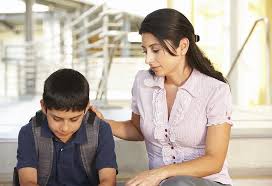Raising more responsible children is an important goal for many parents. And what does it mean to raise more responsible children in the world of today? There are many different ways to encourage responsibility in children. Still, some common strategies include setting clear expectations and boundaries, giving children age-appropriate duties and tasks to complete, modeling responsible behavior, and providing guidance and support as needed.
Raising responsible children in difficult times can mean teaching them how to navigate challenges and adversity while also helping them to develop the skills and values that will enable them to make positive contributions to the world. This may involve teaching them how to be resilient, empathetic, and self-sufficient, as well as helping them to develop a strong sense of right and wrong and a commitment to personal and social responsibility.
What does it mean to raise more responsible children?
Raising responsible children is an essential aspect of life goals. The world of today is very corrupt and decaying; consequently, raising responsible children becomes hectic and cumbersome. But as parents, let us not relentlessly grow these children into responsible adults. It requires setting clear expectations, providing opportunities for independence, and modeling responsible behavior. Here are a few tips for helping your children become more reliable
It may also involve helping them to develop practical skills that will enable them to take care of themselves and others, such as problem-solving, communication, and self-regulation. Ultimately, raising responsible children in difficult times involves helping them develop the skills and values that will enable them to be successful and fulfilled in life, no matter their challenges.

How To Raise More Responsible Children In The World Of Today
Here are a few more specific ideas for how to raise more responsible children in the world of today:
Encourage independence: As children grow and develop, it’s essential to allow them to make their own decisions and solve problems independently. Encouraging independence can help them learn to take responsibility for their actions and become self-sufficient.
Set clear expectations: Make sure your children know what you expect from them regarding their responsibilities and behavior. Be specific and consistent with your expectations.
Set clear boundaries and rules: Make sure your children are fully aware of what is expected of them regarding behavior and responsibilities. Setting clear expectations could mean setting bedtimes, making rules about homework and screen time, and explaining what chores are to be done around the house.
Encourage independence: Allow your children to make their own decisions and solve their problems whenever possible. Let them make their own decisions, even if it means making mistakes because making them as children is better than making them as adults. Encouraging independence will help them develop critical thinking skills and become more self-sufficient. It also helps them to become independent in life.
Give your children age-appropriate responsibilities: Children should be allowed to be children, but certain chores should be assigned to them according to their ages. As they grow and mature, give them increasingly complex tasks and responsibilities. Age-appropriate responsibilities include helping with meal preparation, caring for pets, or doing their laundry. It will help build a strong sense of work ethic, self-reliance, and responsibility.
Teach time management skills: helping children learn to manage their time effectively can be a key to developing responsibility. It might involve setting aside time for homework, chores, and other tasks and teaching children to plan ahead and prioritize their responsibilities.
Read the article on a rebellious child here.
Encourage charitable and community service: Involving children in charitable and community service activities can be a great way to help them understand the importance of giving back and taking responsibility for the well-being of others.
Set and enforce consequences: When kids make mistakes or don’t do what they’re supposed to, it’s crucial to establish and carry out the correct values. It can help them learn that their actions have consequences and encourage them to take responsibility for their behavior.
Show your children how to be reliable and trustworthy: If your children can’t trust you, rest assured they won’t be trusted in the circular world because they can’t give what they don’t have, Be mindful of what you say and how you live your life. After all, children are good observers. Model responsible behavior by being reliable, trustworthy, and accountable for your actions.
Encourage effort and learning: Instead of only focusing on results, praise your kids for how hard they worked and how much they learned. This helps them see the value in hard work and learning rather than just the end result. This allows them to see the value in learning and effort rather than just the outcome. It will also help them understand the matters involved in performing a task well.
Provide consequences for poor behavior: When your children fail to meet their responsibilities or make poor decisions, it’s essential to provide appropriate effects. This might include taking away privileges or requiring extra chores. Don’t fight for your child when punished for misbehaving in school or outside the house. Consequences help children learn from their mistakes and understand the consequences of their actions.
Read more of our articles here.
Allow them some space and freedom: Overparenting is the age’s most difficult challenge. Determine where your child requires freedom and the type of freedom they desire, and give it to them. Untie the child from your wrapper, and get him off the hook. This will make them begin to take care of themselves. Don’t be concerned about the child injuring himself; if he does, he will learn from the experience.
Lead by example: Children learn a lot by watching and imitating adults. If you want your children to be responsible, you must model accountable behavior yourself.
Finally, teach them money management. Money management is the most difficult challenge for the average adult. Before children enter the adult stage, they should be taught financial management. How do I teach my children about money management? We can teach them how to save, spend, and make their own decisions by giving them an allowance and allowing them to earn it.
Some will make mistakes in managing their money, but they will learn from such experiences. The whole aim of this is to position them to be financially responsible adults. As you raise your children, following the above tips can help them develop the skills to become more responsible in this dispensation.

The benefits Of raising more responsible children In The world of today?
There are many benefits when you raise more responsible children in the world of today. Some of the most significant benefits include the following:
Greater independence: As children become more responsible, they can better manage their own time and tasks and are more likely to be self-sufficient. This can make them more confident and capable in their daily lives.
Improved relationships: They are more likely to be reliable and trustworthy, which can lead to better relationships with friends, family, and authority figures.
Better school performance: Children who are responsible and able to manage their time effectively are more likely to excel academically.
More tremendous success in life: These children are more likely to be successful in their personal and professional lives as they have developed essential skills such as time management, problem-solving, and decision-making.
Greater happiness and well-being: Children who are responsible and able to take care of themselves are more likely to have a sense of accomplishment and pride, which can lead to greater happiness and well-being.
When kids do well with tasks and responsibilities suitable for their ages, it can boost their sense of self-worth. This can help them feel more confident and capable.
Read the article on poor parental communication here.
Better social skills: These children are often more reliable and trustworthy, making them likeable and well-respected by their peers. This can lead to better social relationships and a more positive social experience overall.
Greater resilience: Children who manage their tasks are more likely to develop essential life skills. Examples of such life skills are problem-solving, decision-making, and resilience. These skills can be crucial for managing challenges and setbacks in life.
Better mental health: Children who manage their time and tasks are less likely to feel overwhelmed or stressed. This can lead to better mental health and overall well-being.
A more huge success in school and beyond: Kids who are good at managing their time are more likely to do well in school. This will lead to greater success in school and beyond. They may also be more likely to pursue and achieve their goals faster. They have developed the skills and discipline necessary to stay on track and work towards their objectives.
Conclusion
Raising responsible children in difficult times can be challenging. Still, it is important to provide a supportive and nurturing environment for your children and to teach them values such as honesty, compassion, and respect. It is also essential to set clear expectations for your children’s behavior and help them develop decision-making skills to make responsible choices.
Set clear expectations and consequences for your child’s behavior. Encourage your child to take on age-appropriate responsibilities at home. Model responsible behavior yourself, as children learn by observing their parents and other role models. Help your child develop problem-solving skills by encouraging them to devise solutions to their problems.
Encourage independence and decision-making by allowing your child to make choices within certain limits. Help your child develop good time management skills by setting aside time for homework, chores, and other responsibilities. Encourage your child to set goals and work towards achieving them Help your child learn to manage money by giving them an allowance and teaching them how to budget and save.
Finally, raise more responsible children in the world of today by also encouraging your child to be empathetic and considerate of others’ feelings and needs. Help your child learn to respect others’ property and boundaries. Help your child develop good communication skills by encouraging them to ask questions and listen to others. Encourage your child to engage in activities and hobbies that foster a sense of responsibility and commitment.
Shop Children’s Kitchen Kits here
Shop Kishoo Children wear here
Miniclasix Children sweaters here
Children’s Bikes and Bicycles here

Pingback: A Disrespectful Child: All You Need To Know - PARENTING
Pingback: Healthy Eating: Its Value On Gifted Children’s Learning - PARENTING